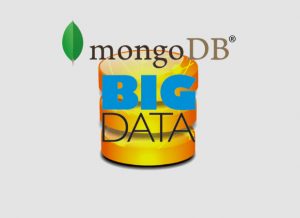 As data is enhanced, one can see an observable and increasing interest surrounding the wave of the ‘NoSQL,’ also known as the non-relational database. Many companies and corporations are searching for a new process to manage big data. They are moving towards the other database management tools and systems that vary from the traditional database systems.
As data is enhanced, one can see an observable and increasing interest surrounding the wave of the ‘NoSQL,’ also known as the non-relational database. Many companies and corporations are searching for a new process to manage big data. They are moving towards the other database management tools and systems that vary from the traditional database systems.
What is MongoDB
MongoDB is an open-source database. It uses a non-structured query language, and document-oriented data and is one of the most robust NoSQL systems and databases in today’s era.
MongoDB is a NoSQL tool that signifies that it does not use the endless rows and columns that are present in relational database management. It is built on documents and collections.
The central unit of data in this database involves a set of key-value pairs. It enables documents to have various structures and fields. MongoDB uses a document storage format called BSON that is a binary style of JSON documents.
It follows a highly elastic data model that lets you mix and store data of multivariate types without compromising on the powerful indexing options.
Key features of MongoDB
MongoDB has a plethora of features, a few of which include:
- MongoDB can run over various servers. Data is replicated to foolproof the MongoDB system in the case of device failure.
- This process shares data across different physical parts called shards, and because of sharding, the database tool has an automatic load balancing feature.
- The Database tool supports MapReduce. It also helps with flexible aggregation tools.
- You can store files of any size without twisting your stack. GridFS features data into tiny parts and stores them as different documents.
- MongoDB is a schema-less database written in C++.
- It utilizes a BSON format, which is a JSON-like format.
- It works well as the database and uses the language rather than procedures.
- MongoDB supports document-based queries and ad-hoc queries.
- One can index any of the fields in the document.
- MongoDB supports Master-Slave replication. It uses native applications to control multiple copies of data. One of the replica set features includes restricting database downtime.
- It is simple to cope with cases of failures in MongoDB. Vast numbers of copies give out data availability and increase protection against database downtimes like multiple machine failures, rack failures, and data center failures, or even network partitions.
Why Big Data Development Company needs MongoDB
MongoDB is a NoSQL type database. It collects the data in documents rather than having data in a relational format. It makes MongoDB more flexible and adaptable to actual business market requirements and situations.
- It boosts search by field, range queries, and regular expression searches. It permits everyone to ask questions to return to particular areas.
- To improve the representation of searches within MongoDB, you can create indexes and index them in MongoDB documents.
How MongoDB is beneficial for businesses
There are several benefits of MongoDB. Few of the main advantages include:
- Distributed Data Platform:
You can run MongoDB to ensure new levels of scalability and availability in data centers and cloud regions distributed across various geographical areas. It scales elastically in terms of data volume and throughput with zero downtime, and without modifying your application. The technology provides enough flexibility across different data centers with high consistency.
- Fast and Iterative Development:
Changing requirements of your business will no longer make an impact on the successful delivery of the project. Efficient GUI and command-line tools make it fast for developers to build and evolve applications with a flexible data model along with dynamic schema.
Automated provisioning offers constant integration and distribution for fruitful operations. Complex operations and Static relational schemas of RDBMS are few things from the past.
- Flexible Data Model:
It stores data in flexible JSON-like documents that make data combining and persistence easy. The objects of your application code are available in the document model, due to which working with data becomes accessible.
Schema governance controls data access, complex aggregations, and does not compromise rich indexing functionality in several ways. One can modify the schema dynamically without downtime. The developer needs to worry less about data manipulation because of this flexibility.
- Reduced TCO (Total Cost of Ownership):
Now, the application developers can do their work way better than before by using MongoDB. Thanks to the Atlas Cloud service, the operations team can also do their job well. MongoDB works on commodity hardware, which reduces the operational cost drastically. The technology offers out on-demand, pay-as-you-go pricing with yearly subscriptions with 24/7 global support.
Where businesses can use MongoDB NoSQL
Several businesses use the MongoDB NoSQL database, majorly for Hadoop and Big Data applications, and for running humongous amounts of NoSQL data. It is a significant part of Big Data. MongoDB and SQL are the database systems, but the efficiency makes each other different in various ways.
You can use MongoDB for mobile applications and social media for parsing all streaming information, which is not in a structured format. Content management and delivery firms can also use MongoDB.
Final words
MongoDB is one of the most potent databases used by some of the giant corporations
across the world. It offers a unique set of features to businesses to parse all their non-structured data.
Professionals who have got qualifications and certifications in working with MongoDB tools can foresee their careers soar at an enormous pace undoubtedly. Businesses can use MongoDB for datasets like social media, videos, and many more because of its versatile and scalable nature.











